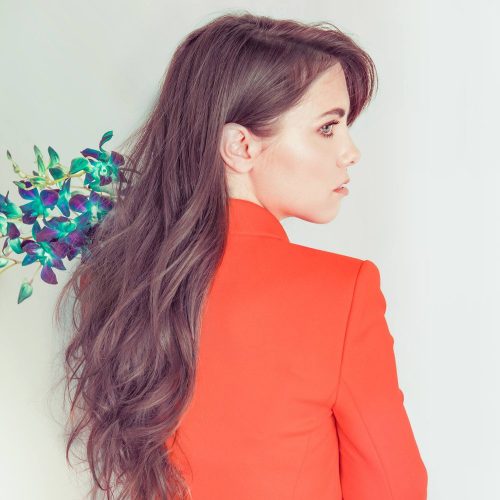Canadian singer-songwriter Laura Gagné serves up whimsical sweetness in her 2020 release, “I Love You Friend.” This is a song about the circular nature of longing and regret. It’s a song about the inextricable link between love and pain, about the rise and fall of closeness and detachment – and its slick, soaring sound will leave you grasping for more.
“I’m sorry dear/I took your hand, your heart, again.”
The song both opens and closes with an apology – the sort of apology that suggests history, attachment, and the inevitable extension of this connection. This circularity is mirrored in the arrangement as well – its soundscape is looping, introspective, and punctuated by echoing background sounds that leave plenty of space for the elevated vocals. The song references circles in direct terms too, as Gagné sings about “the circle in my head.”
“I love you back, more than friend/But it seems my heart is far away from where you are.”
Gagné lets her voice burst open during the refrain, the vocals lifting into flight with an exquisite, endless energy. There’s nothing bitter about her voice, even in the song’s emotional moments. Rather, Gagné’s voice remains sweet, swirling in cool tones, crafting a masterfully free sound. It hints at something under the surface, a hidden discovery buried in the gentility of her voice, a suggestion of detachment which suits the lyrics beautifully.
“And I’m still walking away before I fall apart/I’m sorry dear/I wouldn’t make you cry again.”
The lyrics here reinforce the song’s theme of circularity, using words like “still” and “again” to imply familiarity, repetition, predictability in the pain. The song’s mixing nearly resembles the ceiling of a cathedral – swooping, graceful, and too far away to see in detail. The piano sounds as though it’s being played from another room, enhancing the song’s sense of detachment and secrecy. But Gagné’s voice sounds like she’s standing right next to you. Like she’s whispering into your ear.
“And I walked away/And I walk away.”
At this point, the song gently spirals into glittering strings as Gagné slides into repetition. She seems to alternate between past and present tense, between having “walked away” and continuing to do so, an effect which fits nicely with the previous verse where she describes herself “still walking away.” This again reinforces the idea of circularity, of uncertainty, of being locked in a cycle of love and loss – and this dynamic presents itself both in the delivery and in the lyrics. To me, this section seems to be indicative of a continuing struggle for the narrator, like she’s trying to convince herself to continue walking away even as she has already left.
“I’m sorry friend/Would you take my hand my heart again?”
The song’s final line is nearly identical to the opening – the only difference is that now the sentence is being posed as a question rather than a statement. In this way, Gagné closes the loop while simultaneously beginning that loop again.







